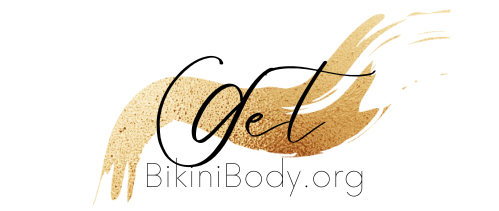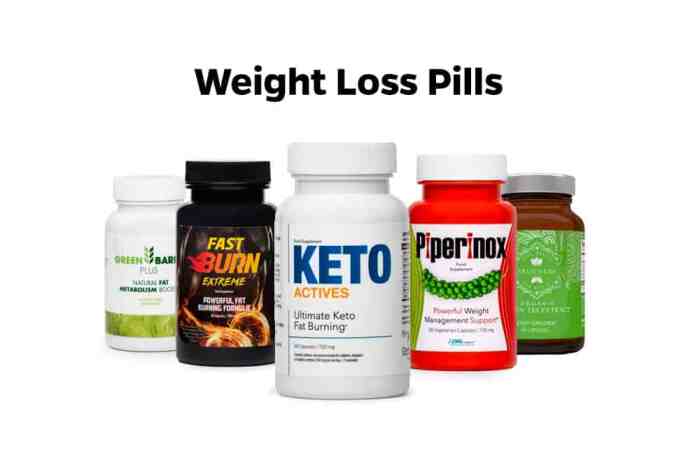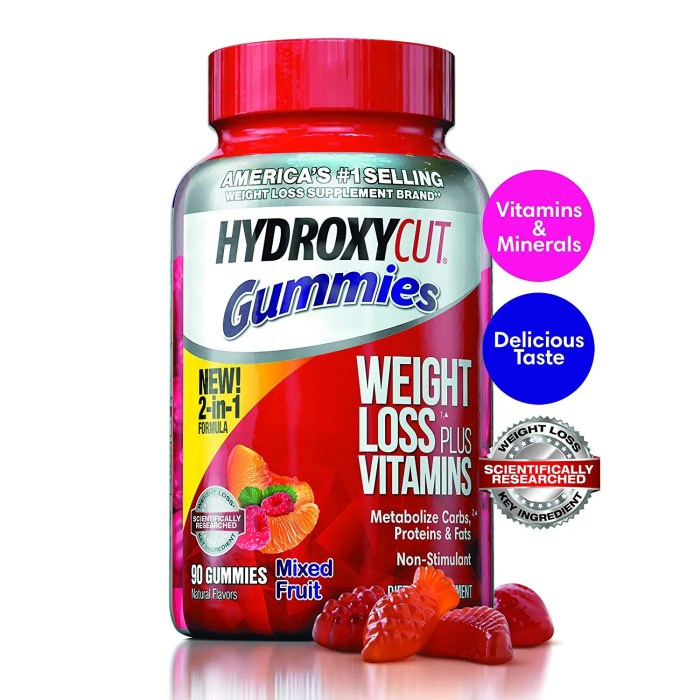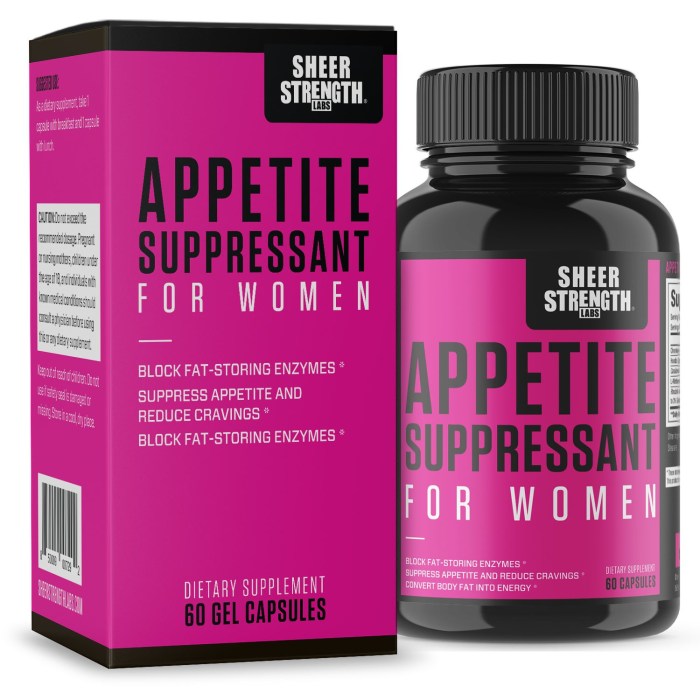Embarking on a weight loss journey over the age of 40? Supplements for weight loss over 40 can be a game-changer, but navigating the world of supplements can be overwhelming. Dive into this comprehensive guide to discover the potential benefits, types, safety considerations, and natural alternatives to help you achieve your weight loss goals.
As we age, our bodies undergo physiological and hormonal changes that can make shedding pounds more challenging. Supplements can provide targeted support to enhance metabolism, suppress appetite, and improve body composition, making weight loss more manageable.
Introduction
As we age, our bodies change, and so do our nutritional needs. Adults over 40 may find it more difficult to lose weight, even if they are eating healthy and exercising regularly.
Hey there, ladies! If you’re over 40 and looking to shed some pounds, you’re not alone. There are plenty of supplements out there that can help you on your journey. But if you’re looking for something more than just a pill, you might want to consider joining a weight loss support group for women over 40 . These groups can provide you with motivation, support, and accountability.
And who knows, you might even make some new friends along the way! Plus, supplements can still play a role in your weight loss journey, so don’t give up on them just yet.
This is because our metabolism slows down as we age, and we also tend to lose muscle mass, which can further slow down our metabolism. Additionally, our hormones can change as we age, which can also affect our weight.
Supplements for Weight Loss
There are a number of supplements that can help adults over 40 lose weight. These supplements can help to boost metabolism, increase energy levels, and reduce appetite.
Common Challenges of Weight Loss Over 40
Losing weight after the age of 40 presents unique challenges that are distinct from those faced by younger individuals. As we age, our bodies undergo physiological and hormonal changes that impact our metabolism, body composition, and appetite regulation, making weight loss more challenging.
Physiological Changes
- Decreased Metabolism:With age, our basal metabolic rate (BMR) slows down, meaning we burn fewer calories at rest. This is due to a decrease in muscle mass and an increase in body fat, which are both metabolically active tissues.
- Changes in Body Composition:As we age, we tend to lose muscle mass and gain body fat, particularly in the abdominal area. This shift in body composition makes it harder to burn calories and maintain a healthy weight.
- Hormonal Changes:The production of certain hormones, such as estrogen and testosterone, declines with age. These hormones play a role in regulating appetite, metabolism, and body composition, and their decline can contribute to weight gain.
Appetite Regulation
In addition to physiological changes, aging can also affect appetite regulation. As we get older, our bodies become less sensitive to the hormone leptin, which signals fullness. This can lead to increased hunger and cravings, making it harder to control calorie intake.
Importance of a Balanced Diet and Regular Exercise
Maintaining a healthy weight over the age of 40 requires a comprehensive approach that includes a balanced diet and regular exercise. As we age, our metabolism slows down, and our bodies become less efficient at burning calories. This, combined with the hormonal changes associated with aging, can make it more challenging to lose weight and keep it off.
A nutritious diet provides the essential nutrients our bodies need to function properly. It should include a variety of fruits, vegetables, whole grains, and lean protein. These foods are low in calories and high in fiber, which helps keep us feeling full and satisfied.
They also provide antioxidants and other nutrients that protect our cells from damage.
Regular exercise is another crucial component of weight management. Exercise helps us burn calories, build muscle, and improve our overall health. Aim for at least 150 minutes of moderate-intensity exercise or 75 minutes of vigorous-intensity exercise each week. If you’re new to exercise, start slowly and gradually increase the intensity and duration of your workouts over time.
Healthy Eating Guidelines
- Eat plenty of fruits and vegetables.
- Choose whole grains over refined grains.
- Limit your intake of processed foods, sugary drinks, and unhealthy fats.
- Cook more meals at home so you can control the ingredients.
- Make small changes to your diet gradually, such as adding a serving of fruit to your breakfast or lunch.
Exercise Recommendations
- Aim for at least 150 minutes of moderate-intensity exercise or 75 minutes of vigorous-intensity exercise each week.
- Choose activities that you enjoy and that fit into your lifestyle.
- Start slowly and gradually increase the intensity and duration of your workouts over time.
- If you have any health concerns, talk to your doctor before starting an exercise program.
Potential Benefits of Supplements
Supplements can be valuable adjuncts to a comprehensive weight loss plan for individuals over 40. They can provide targeted support in areas where dietary and lifestyle modifications alone may not be sufficient.
Certain supplements have been shown to enhance metabolism, suppress appetite, or improve body composition, making them potential allies in the weight loss journey.
Enhanced Metabolism
- Green tea extract:Contains catechins, antioxidants that have been linked to increased fat oxidation and calorie expenditure.
- Caffeine:A stimulant that can temporarily boost metabolism and increase energy levels.
- Capsaicin:Found in chili peppers, capsaicin may increase thermogenesis (heat production), leading to increased calorie burn.
Appetite Suppression, Supplements for weight loss over 40
- Glucomannan:A soluble fiber that expands in the stomach, promoting a feeling of fullness and reducing hunger.
- Konjac root:Another soluble fiber with similar appetite-suppressing effects as glucomannan.
- Hoodia gordonii:A succulent plant extract that has been traditionally used as an appetite suppressant.
Improved Body Composition
- Conjugated linoleic acid (CLA):A fatty acid that may promote fat loss and increase muscle mass.
- Branched-chain amino acids (BCAAs):Essential amino acids that can help preserve muscle mass during weight loss.
- Carnitine:A nutrient involved in fat transport and energy production, which may enhance fat loss.
Types of Supplements for Weight Loss
Navigating the world of weight loss supplements can be overwhelming. Let’s break down the different types to help you make informed choices.
Supplements fall into four main categories:
Thermogenic Supplements
These supplements increase your body’s temperature, which can boost metabolism and burn calories.
Over 40 and trying to shed some pounds? You’re not alone! Check out Weight loss success stories for women over 40 for inspiration and tips. These real-life stories will show you that it’s possible to lose weight and keep it off, even after 40. And if you’re looking for supplements to help you on your weight loss journey, be sure to talk to your doctor about what’s right for you.
- Common ingredients: Caffeine, green tea extract, capsaicin
- Potential benefits: Increased energy, fat oxidation
- Cautions: May cause jitters, headaches
Appetite Suppressants
These supplements help curb your hunger and reduce food intake.
- Common ingredients: Fiber, glucomannan, Hoodia gordonii
- Potential benefits: Reduced appetite, fewer cravings
- Cautions: May cause gastrointestinal issues
Fat Burners
These supplements claim to increase fat breakdown and promote fat loss.
- Common ingredients: L-carnitine, conjugated linoleic acid (CLA), raspberry ketones
- Potential benefits: Increased fat oxidation, reduced body fat
- Cautions: Limited scientific evidence, may interact with medications
Metabolism Boosters
These supplements aim to increase your metabolic rate, which can lead to increased calorie burn.
- Common ingredients: Green tea extract, chromium, yohimbine
- Potential benefits: Increased metabolism, fat loss
- Cautions: May cause side effects like anxiety, insomnia
Safety and Efficacy Considerations
Before incorporating any supplements into your weight loss journey, it’s crucial to consult with a healthcare professional. They can assess your overall health, identify any underlying conditions, and guide you towards the most suitable supplements for your individual needs.
It’s important to be aware of potential side effects and interactions associated with weight loss supplements. Some common side effects include gastrointestinal issues, headaches, and anxiety. Additionally, certain supplements may interact with medications you’re taking, so it’s essential to disclose your complete medical history to your healthcare provider.
Guidelines for Safe and Effective Use
- Consult with a healthcare professional before taking any supplements.
- Follow the recommended dosage and usage instructions carefully.
- Be mindful of potential side effects and interactions.
- Choose supplements from reputable manufacturers with third-party certifications.
- Store supplements properly to maintain their efficacy and safety.
- Monitor your progress and adjust your supplement regimen as needed with the guidance of a healthcare professional.
Natural Supplements for Weight Loss
Incorporating natural supplements into your weight loss journey can provide additional support and enhance your overall health. Several natural ingredients have been shown to promote weight loss, improve metabolism, and reduce appetite.
Here are some of the most effective natural supplements for weight loss:
Green Tea Extract
- Contains powerful antioxidants called catechins, which have been shown to boost metabolism and increase fat oxidation.
- May help reduce appetite and cravings.
Caffeine
- A natural stimulant that can increase energy expenditure and boost metabolism.
- May also suppress appetite and improve focus.
Garcinia Cambogia
- Contains hydroxycitric acid (HCA), which may help block fat storage and increase satiety.
- May also reduce appetite and cravings.
Conjugated Linoleic Acid (CLA)
- A type of fatty acid that has been shown to promote fat loss and increase muscle mass.
- May also help improve insulin sensitivity and reduce inflammation.
Herbal Supplements for Weight Loss
Herbal supplements have gained popularity as potential aids in weight loss. These supplements are derived from plants and are believed to have various effects on metabolism, appetite, and fat storage. However, it’s important to approach herbal supplements with caution and consult with a healthcare professional before using them.
Let’s explore some common herbal supplements used for weight loss and their potential benefits and drawbacks:
Hoodia Gordonii
- Hoodia gordonii is a succulent plant native to Southern Africa. Its extract is believed to suppress appetite by mimicking the effects of leptin, a hormone that signals fullness.
- Studies have shown mixed results regarding its effectiveness. Some studies suggest it may reduce appetite and food intake, while others have found no significant effects.
- Potential side effects include nausea, vomiting, and diarrhea.
Forskolin
- Forskolin is an extract from the Coleus forskohlii plant. It is believed to stimulate the production of cyclic adenosine monophosphate (cAMP), which may increase fat breakdown and metabolism.
- Research on forskolin’s weight loss effects is limited, and the results have been inconsistent.
- Potential side effects include nausea, diarrhea, and headaches.
Guggul
- Guggul is a resin from the Commiphora mukul tree. It is believed to lower cholesterol levels and promote thyroid hormone production, which may support weight loss.
- Studies have shown some promise in guggul’s ability to reduce weight and body fat.
- Potential side effects include stomach upset, diarrhea, and skin rashes.
Fennel
- Fennel is a herb commonly used in cooking. It is believed to have diuretic and digestive properties that may aid in weight loss.
- Fennel may help reduce bloating and improve digestion, which can contribute to a feeling of fullness and reduced appetite.
- Potential side effects include allergic reactions and skin irritation.
Other Considerations
Apart from the key factors mentioned above, other aspects can also influence weight loss over 40. These include:
Sleep Quality
Getting enough quality sleep is crucial for overall health and weight management. When we don’t get enough sleep, our bodies produce more of the hormone cortisol, which can lead to increased appetite and cravings. Aim for 7-9 hours of restful sleep each night.
Stress Management
Chronic stress can also contribute to weight gain. When we’re stressed, our bodies release hormones like cortisol and adrenaline, which can increase blood sugar levels and lead to cravings for unhealthy foods. Find healthy ways to manage stress, such as exercise, meditation, or spending time in nature.
Social Support
Having a strong support system can be invaluable for weight loss success. Surround yourself with people who encourage and support your healthy lifestyle goals. Join a support group, connect with friends or family members who are also trying to lose weight, or work with a therapist or counselor for additional support.
As we age, our bodies undergo changes that can make it more challenging to lose weight. For women over 40, hormonal shifts and a slower metabolism can make it especially difficult to shed unwanted pounds. If you’re struggling to lose weight, you may want to consider incorporating supplements into your routine.
There are a number of supplements that have been shown to support weight loss, including green tea extract, conjugated linoleic acid, and glucomannan. Before taking any supplements, be sure to talk to your doctor to make sure they’re right for you.
Check out Weight loss challenges for women over 40 for more information.
Case Studies and Success Stories: Supplements For Weight Loss Over 40
To illustrate the effectiveness of supplements in weight loss over 40, let’s explore real-life case studies and success stories.
These individuals have successfully shed excess weight by incorporating supplements into their weight loss journeys, providing valuable insights into their experiences, challenges, and remarkable results.
Sarah’s Journey
Sarah, a 45-year-old mother of two, struggled with weight gain for years. Despite following various diets and exercise routines, she found it challenging to lose weight effectively.
After consulting with a healthcare professional, Sarah started taking a combination of green tea extract, CLA, and fiber supplements. Within a few months, she noticed a significant decrease in her appetite and cravings.
Combined with regular exercise and a balanced diet, the supplements helped Sarah lose 20 pounds in 6 months. She reported feeling more energized, satisfied, and confident in her body.
Conclusion
In summary, weight loss over 40 requires a multifaceted approach that encompasses dietary modifications, regular exercise, and potentially the use of supplements. Supplements can provide additional support, but they should not be solely relied upon for weight loss. A balanced diet and regular exercise remain the cornerstone of a healthy weight loss journey.
Remember, each individual’s needs and responses to weight loss strategies may vary. It’s crucial to consult with a healthcare professional to develop a personalized plan that addresses your specific requirements and concerns. They can provide guidance on appropriate supplements, dosage, and any potential interactions or side effects.
Last Point
Remember, supplements are not a magic bullet. They should be used in conjunction with a balanced diet, regular exercise, and a holistic approach to weight management. Consult with a healthcare professional to determine the best supplements for your individual needs and to ensure safe and effective use.
With the right supplements, you can overcome the challenges of weight loss over 40 and achieve your health and fitness goals. Embrace a healthier lifestyle and watch the pounds melt away!
Question & Answer Hub
Are supplements safe for weight loss over 40?
While some supplements can be beneficial, it’s crucial to consult with a healthcare professional before taking any supplements. Some supplements may have side effects or interact with medications.
What are the most effective types of supplements for weight loss over 40?
Thermogenic supplements, appetite suppressants, fat burners, and metabolism boosters are commonly used for weight loss over 40. However, their effectiveness can vary depending on individual factors.
Are there any natural supplements that can aid in weight loss over 40?
Yes, certain natural supplements like green tea extract, caffeine, garcinia cambogia, and conjugated linoleic acid (CLA) have shown promise in supporting weight loss.



